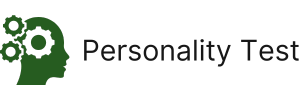Free Online Personality Assessment Tests

Take Eysenck’s Personality Inventory Online
Test YourselfOnline personality assessments have become increasingly popular tools for self-discovery, offering insights into our character traits, emotional patterns, and thought processes. These digital instruments use structured questions and statements to evaluate various aspects of our personalities, helping us better understand ourselves for personal growth, relationship improvement, and career guidance.
The Science Behind Personality Assessment Tests
Personality tests are grounded in psychological theories about human behavior and traits. Taking a personality assessment test can reveal meaningful patterns in how we think and behave. These assessments use various methodologies to measure and categorize aspects of personality, with most online versions being designed for accessibility and user engagement.
Assessment Methodologies
Most free personality assessment tests online employ self-reporting questionnaires where individuals respond to statements about their typical behaviors, preferences, and reactions. These tests vary in length, complexity, and theoretical foundation, but typically follow a similar format:
- Users answer a series of questions or rate statements according to how accurately they describe themselves
- An algorithm processes these responses against established personality models
- Results are generated that classify or measure the user's personality traits based on their pattern of responses
The quality and validity of these assessments vary significantly, with some being firmly grounded in scientific research while others are designed more for entertainment. The most scientifically validated tests, like the Big Five Personality Test, have undergone decades of research and validation studies to ensure their reliability and accuracy.
Question Design and Response Formats
Questions in personality tests are carefully crafted to elicit responses that reveal underlying personality traits. Most commonly, these tests use Likert scales where respondents indicate their level of agreement with statements about themselves. A self-report inventory might ask users to rate on a scale from "Strongly Disagree" to "Strongly Agree" for statements like "I enjoy being the center of attention" or "I prefer following a routine."
The length of these assessments can vary dramatically. Some comprehensive tests like the full Big Five assessment include 120 statements and take about 15 minutes to complete, while shorter versions might include only 10 questions and take 25 minutes.
Major Types of Free Online Personality Tests
Several personality profile assessment models have gained widespread popularity and are commonly available as free online tests.
The Big Five Personality Test (OCEAN)
The Big Five (also known as the Five-Factor Model or OCEAN) is considered by many psychologists to be the most scientifically validated and reliable personality assessment model. This test measures five core personality dimensions:
- Openness to experience (creativity, curiosity, openness to new ideas)
- Conscientiousness (organization, dependability, self-discipline)
- Extraversion (sociability, assertiveness, emotional expressiveness)
- Agreeableness (compassion, cooperation, trustworthiness)
- Neuroticism (anxiety, emotional instability, tendency to experience negative emotions)
The Big Five model is extensively used in psychological research and has been found to be relatively stable across cultures and throughout adult life. Free online personality test assessments based on this model are widely available, though they may vary in comprehensiveness compared to those used in professional settings.
Myers-Briggs Type Indicator (MBTI)-Style Tests
While the official MBTI assessment is not typically available for free, many free Myers-Briggs personality assessment tools are based on the same theoretical model. These tests categorize personalities into 16 types based on four dichotomies:
- Extraversion (E) vs. Introversion (I)
- Sensing (S) vs. Intuition (N)
- Thinking (T) vs. Feeling (F)
- Judging (J) vs. Perceiving (P)
These dichotomies were derived from Carl Jung's analytical psychology and developed by Katharine Cook Briggs and Isabel Briggs Myers. The resulting 16 personality types (such as INTJ, ESFP, etc.) provide a framework for understanding different approaches to perceiving the world and making decisions. Many people find the MBTI assessment for free online to be an engaging introduction to personality psychology.
Persolog Personality Factor Model
The Persolog Personality Factor Model, developed by Dr. John G. Geier, focuses on behavioral dimensions rather than stable traits. This model assesses how individuals perceive their environment (stressful or non-stressful) and how they respond to it (assertive or non-assertive). The combination of these responses results in four behavioral dimensions:
- Dominant (D)
- Initiative/Influencing (I)
- Steady (S)
- Conscientious (C)
This approach is particularly focused on situational behavior and is often used for personal development, improving communication, resolving conflicts, and enhancing teamwork. Personality assessment for free self-checks based on this model typically take only about 5 minutes to complete with just 10 questions.
Projective Techniques
Though less common in free online formats, some personality assessments use projective techniques that aim to reveal unconscious aspects of personality. The most famous examples include:
- Thematic Appreciation Test (TAT) - Involves interpreting ambiguous images
- Rorschach Inkblot Test - Requires describing what one sees in abstract inkblot patterns
These tests are designed to uncover aspects of personality that lie in the unconscious mind, evaluating a person's interests, attitudes, and patterns of thought through their responses to ambiguous stimuli.
What These Tests Evaluate
Personality tests aim to measure a wide range of psychological attributes that influence how we think, feel, and behave.
Character Traits and Behavioral Tendencies
Most personality assessments online focus on identifying relatively stable character traits and behavioral tendencies. These include:
- Social traits: How we interact with others (extraversion, agreeableness, dominance)
- Emotional traits: How we experience and regulate emotions
- Cognitive traits: How we think, plan, and solve problems
- Motivational traits: What drives our behavior and decisions
These traits are typically measured along continua rather than as absolute categories, recognizing that most people exhibit varying degrees of different traits depending on context and circumstances.
Cognitive and Emotional Patterns
Many free results online personality assessment tools evaluate patterns in how we process information, make decisions, and manage emotions. For example:
- Information processing styles: Whether we rely more on concrete facts (sensing) or abstract patterns (intuition)
- Decision-making approaches: Whether we prioritize logical analysis (thinking) or values and feelings (feeling)
- Emotional regulation strategies: How we handle stress and negative emotions
Understanding these patterns can help individuals recognize their natural tendencies and develop more effective strategies for managing challenges in various life domains.
Strengths and Potential Blind Spots
A valuable aspect of free myers-briggs assessment and other personality tests is the identification of personal strengths and potential areas for growth. By recognizing natural tendencies, individuals can leverage their strengths while developing awareness of potential blind spots or limitations.
For example, someone with high conscientiousness might excel at organized, detail-oriented work but might need to develop flexibility for creative or rapidly changing environments. Similarly, a highly extraverted person might thrive in social leadership roles but need to cultivate listening skills and patience with more introverted colleagues.
Benefits and Applications of Personality Tests
Free personality assessments online offer numerous practical applications for personal and professional development.
Personal Growth and Self-Awareness
One of the primary benefits of personality tests is increased self-awareness. These assessments can help individuals:
- Understand their natural tendencies and preferences
- Recognize patterns in their emotional responses
- Identify personal strengths and areas for development
- Gain insights into behaviors that may have previously seemed puzzling or inconsistent
This self-knowledge forms the foundation for intentional personal growth and development of more effective coping strategies for life's challenges. A Myers-Briggs personality self-assessment can be particularly helpful in this regard.
Career Guidance and Development
Personality assessment for free printable resources are frequently used in career counseling and professional development contexts to help individuals:
- Identify careers that align with their natural inclinations and strengths
- Understand their work style and preferences
- Recognize how they typically approach challenges and teamwork
- Develop strategies for success in their chosen field
Research has shown that measuring personality traits can effectively predict a person's success in school or on the job, though this information is most valuable when used to help individuals adapt to their environments rather than simply predicting outcomes.
Relationship Enhancement
Understanding personality differences can significantly improve interpersonal relationships by:
- Increasing empathy for different perspectives and approaches
- Providing a framework for understanding communication differences
- Helping anticipate potential conflict areas and develop mitigation strategies
- Fostering appreciation for the diverse strengths different personality types bring to relationships
The insights gained from free personality assessment test printable resources can be particularly valuable in romantic relationships, family dynamics, and professional team settings where different personality types must collaborate effectively.
Limitations and Considerations
While personality tests can provide valuable insights, they also come with important limitations that users should consider.
Scientific Validity Varies Widely
The scientific validity of personality tests varies dramatically. The Big Five model has extensive research support, while many free online tests may lack rigorous validation. When exploring self-report inventories, it's important to:
- Look for tests based on established psychological models
- Consider the research backing the assessment
- Approach results as general insights rather than definitive classifications
- Remember that brief tests (especially those under 5 minutes) typically provide less comprehensive and reliable results than longer assessments
Context and Self-Perception Influence Results
Personality test results are influenced by:
- The test-taker's self-perception (which may differ from how others perceive them)
- Current mood and circumstances
- Cultural context and personal values
- The specific wording and framing of questions
Most personality assessment for free tests rely on self-reporting, which introduces potential biases based on how individuals see themselves or wish to be seen. Some tests include validity scales to detect inconsistent responding or attempts to present oneself in an overly positive light.
Personality Is Complex and Dynamic
Perhaps the most important limitation to consider is that personality is more complex, nuanced, and dynamic than any test can fully capture. While personality traits show relative stability over time, people can and do change, particularly in response to significant life experiences, deliberate personal development efforts, or therapeutic interventions. Self-report inventories provide a snapshot at a particular moment rather than a permanent assessment.
Effective use of personality assessments requires recognizing that they provide a snapshot of certain aspects of personality rather than a comprehensive or permanent description of who someone is.
Conclusion
Free online personality assessment tests offer accessible tools for exploring and understanding aspects of our character traits, emotional patterns, and thought processes. While they vary in scientific validity and comprehensiveness, these assessments can provide valuable insights that support personal growth, career development, and improved relationships.
The most valuable approach to personality testing involves using well-validated assessments as starting points for self-reflection rather than as definitive classifications. When approached with appropriate expectations and an understanding of their limitations, personality assessment for free printable tests can serve as helpful tools in the ongoing journey of self-discovery and personal development.
